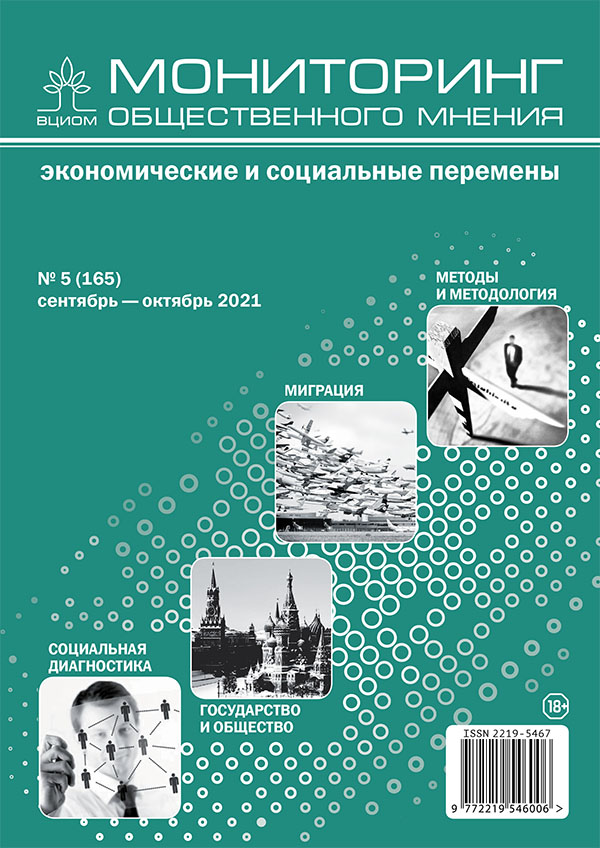Занятость и здоровье “сэндвич-поколения” в России: эмпирический анализ
DOI:
https://doi.org/10.14515/monitoring.2021.5.1844Ключевые слова:
сэндвич-поколение, сэндвич-синдром, неформальный уход, занятость, здоровье, мэтчинг, РоссияАннотация
В работе изучается влияние «сэндвич-синдрома» на занятость и здоровье индивидов в России. Мы полагаем, что человек испытывает «сэндвич-синдром», если предоставляет услуги неформального ухода двум поколениям. Оценивание эффекта “сэндвич-синдрома” проводится методом мэтчинга. Эмпирической базой исследования являются микроданные Выборочного наблюдения использования суточного фонда времени населением, проведенного Росстатом в 2019 году. Выявлено, что в целом «сэндвич-синдром» оказывает негативное влияние на вероятность занятости индивидов, увеличивает вероятность дистанционной занятости, но не влияет на заработную плату. Наличие «сэндвич-синдрома» не влияет на самооценку здоровья индивидов, но увеличивает вероятность наличия хронических заболеваний. Люди, ухаживающие за двумя поколениями, чаще испытывают чувство нехватки времени и имеют меньше свободного времени. Величина и значимость эффекта «сэндвич-синдрома» варьируется в зависимости от типа контрольной группы (не испытывающие «сэндвич-синдром»; ни за кем не ухаживающие; ухаживающие только за детьми; ухаживающие только за взрослыми).
Благодарность. Статья подготовлена в рамках выполнения научно-исследовательской работы государственного задания РАНХиГС.
Автор выражает свою искреннюю признательность И.А. Денисовой, М.Г. Колосницыной и анонимному рецензенту за чрезвычайно полезные замечания и комментарии.
Загрузки
Опубликован
Как цитировать
Выпуск
Раздел
Лицензия
Copyright (c) 2021 Мониторинг общественного мнения: экономические и социальные перемены

Это произведение доступно по лицензии Creative Commons «Attribution-NonCommercial-ShareAlike» («Атрибуция — Некоммерческое использование — На тех же условиях») 4.0 Всемирная.






